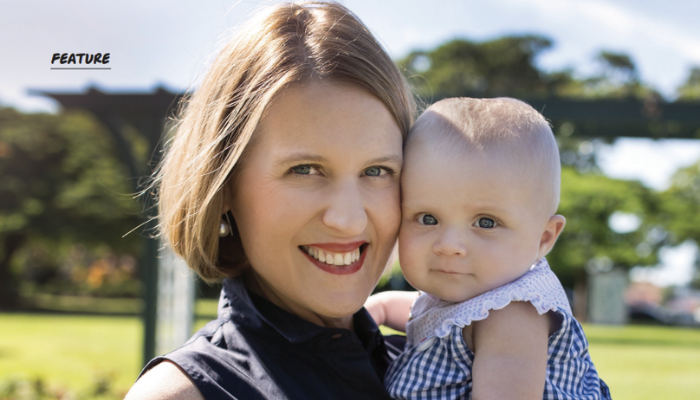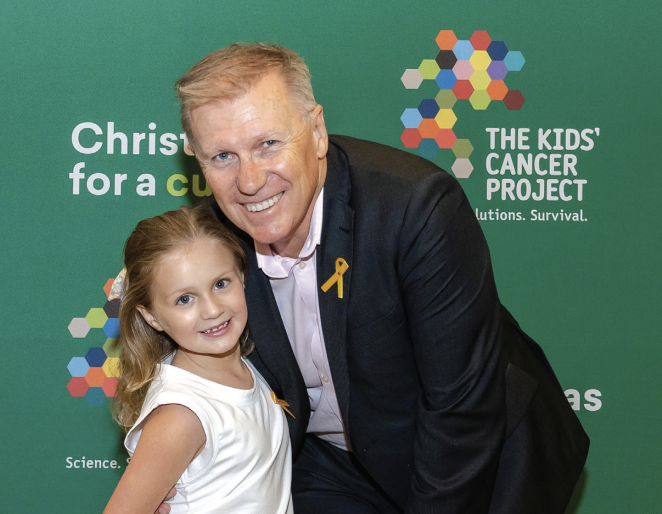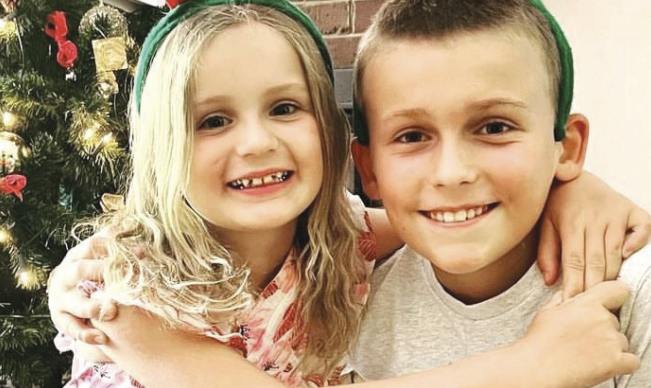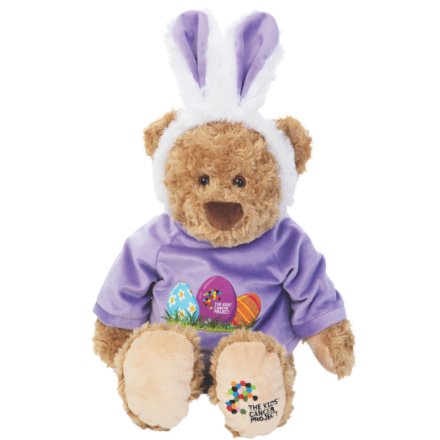“All we had was hope.” − How your support is helping kids like Matilda survive cancer.

At just eight-weeks-old, Matilda’s chances of surviving acute lymphoblastic leukaemia (ALL) hung at less than 20%. Here, her dad Kyle talks about how important research was in her survival and how better access to clinical trials in Australia is critical to improving survival rates.
Exactly two months after welcoming their second child into the world − a daughter named Matilda − Kyle Swain and his wife Carmen were suddenly faced with the very real possibility of losing her. Just moments after discovering their little girl had cancer, the couple were told she had less than 20% chance of surviving − if she made it through that first night in hospital. Thankfully, Matilda did make it through that first night, but the journey ahead would be gruelling, and any sense of normality for the family gone for a long time. Kyle says:
They had to start the treatment immediately that first night, with the lumbar puncture and the first doses of chemo – the hospital became our life for the next 211 nights.
Carmen and I did 24-hour shifts. We had incredible support from our families,friends, and the hospital staff. We did a handover every lunchtime for 20 minutes, and on the weekends the handover was longer so our three-year-old son could visit his little sister.
It was critical to ensure Matilda got the best treatment protocol possible, and so, on top of her chemotherapy and other treatments, Matilda had her mixed lineage leukaemia (MLL) genes sequenced, a decision that proved critical later in her treatment. Kyle continues:
Matilda had her MLL genes sequenced which helped her doctors understand the precise nature of her cancer and inform her treatments. I absolutely believe it had a massive impact on her outcomes all the way through the multiple chemo cycles and the transplant.
The decision proved to be crucial later in her treatment journey, as forty-two days after receiving a bone marrow transplant, Kyle and Carmen were told a relapse was imminent and further treatment options for Matilda were non-existent:
The doctors had found clone cells in her bone marrow and expected a relapse. Because it was less than six months after the transplant, they initially said there was nothing they could do.
As a father, you just can’t accept that; there’s got to be something you can do. Something. The idea you just take your baby home and wait for her to die is completely unacceptable.

Matilda’s medical team told us about these new T-cell trials available in the US. They would likely cost us around 750,000 US dollars, which we didn’t have, but we had to do something! I applied to two of them and was rejected from both because Matilda didn’t quite meet the criteria. The third was also a longshot so I held off applying so that in my mind we still had some ‘hope’ if she relapsed.
I couldn’t understand why we didn’t have access to trials with such potentially game-changing treatment in Australia.
With no other options, Kyle and Carmen agreed to stop some of the post-transplant medications to allow Matilda’s own immune system to fire up and fight off the potential relapse. After four agonising months, unsure if Matilda would relapse or not, the news came in – her new immune system was working, and Matilda was cancer free! Kyle says:
When we got that all-clear call we celebrated, dancing around like lunatics – she was supposed to relapse and not survive, and instead we had this miraculous outcome, and now eight years later, she’s a healthy little girl and is considered ‘cured!’.
All those little things made a difference, and sequencing her specific MLL genes helped to inform all the decisions that the oncology team were making here in Brisbane.It helped get her into remission, it helped to keep her in remission during her bone marrow transplant and helped get her through her relapse scare too. I still believe that this personalised sequencing saved her life.

Matilda’s story is inspiring on so many levels. It’s an incredible example of how gifts from people like you have a very real impact – in this case, the research that allowed doctors to sequence Matilda’s MLL genes was vital to saving her life.
With your ongoing support, we’re committed to both helping fund ground-breaking kids’ cancer research and helping kids like Matilda access the best treatments available through clinical trials. Matilda’s recovery is remarkable, and she wouldn’t be alive today without previous research, but very simply, it’s not right that kids like her can be left with no options, unable to access the newest treatments here in Australia.
Following Matilda’s miraculous recovery, her family have become dedicated supporters of The Kids’ Cancer Project, determined to help fund more life-saving research, giving other kids better access to treatments that can make a significant difference to their lives.
Your ongoing support is vital in helping make that possible. Thank you.
With a gift of $108 today, you could fund a researcher for two hours as they develop lifesaving new clinical trial drugs for kids like Matilda.

